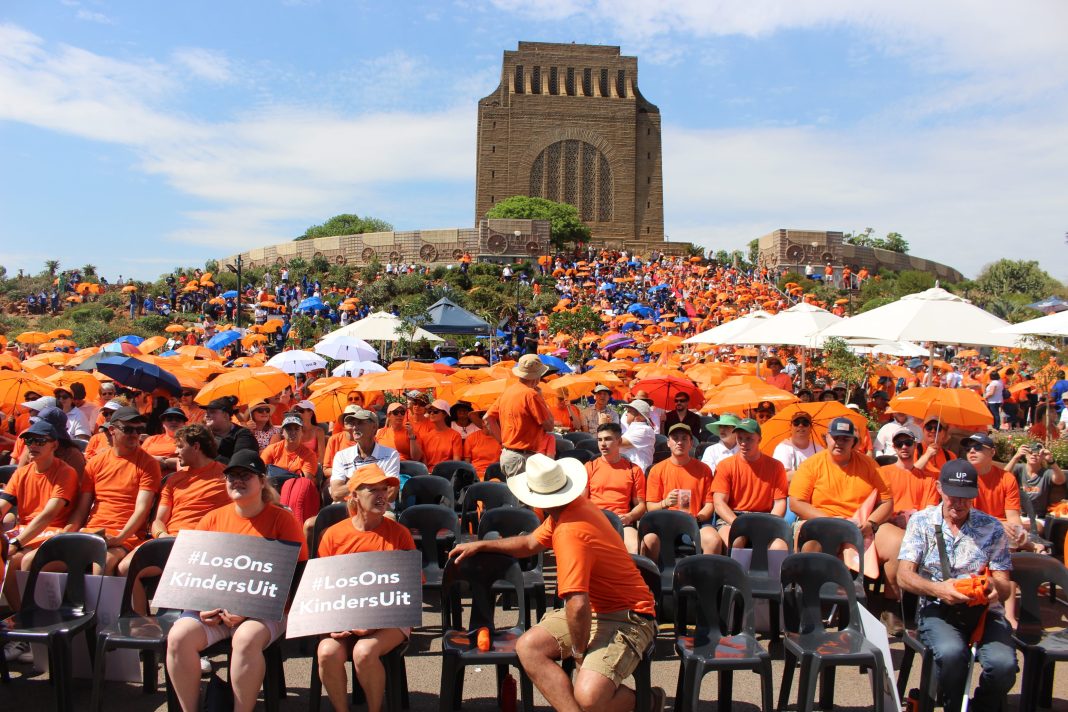By Akani Nkuna
While thousands of advocates for Afrikaans-medium schools and their supporters protested in Pretoria on Tuesday, organisers said that the march was not only about keeping Afrikaans in schools.
Solidarity CEO Dirk Hermann said that the country at large stood to benefit from the preservation of mother tongue teaching and learning.
“The fact of the matter is BELA (Basic Education Laws Amendment) Act also does not provide for broader mother tongue education, and broader mother tongue education is something for all South Africans. 95% of South Africans do not study in their own language,” he told Inside Education.
While police estimated the turnout to be around 5000 people, the organisers said 10,000 participants joined the demonstration.
They included the broader Solidarity Movement, AfriForum, the Freedom Front Plus and the Democratic Alliance.
They marched from Voortrekker Monument to Freedom Park, where they presented a memorandum opposing the Act to Arts, Culture and Sports Minister Gayton McKenzie.
MacKenzie had to intervene last week after Freedom Park refused to allow the protesters permission to march there.
FF Plus leader Pieter Groenewald said during the demonstration that “we are to bring change because the BELA Bill was pushed before the election”.
“They knew there would be a change because they knew they were going to lose power.”
The legislation has ignited intense controversy, mainly on clauses concerning single-medium schools, language policies and admission requirements.
At the heart of the debate is the Act’s aim to promote inclusivity and accessibility in education, particularly for the historically disadvantaged communities.
Groenewald, who is also the Correctional Services Minister, asserted that their efforts at preserving the Afrikaans language and culture would be enjoyed by all people.
“Always be proud of who you are, whether it is Zulu, Xhosa… whoever, be proud of who you are. I am an Afrikaner and proud of who I am. Part of that pride is my mother tongue. Thus, our pride should not be undermined, and our mother tongue taken away,” he said.
DA leader John Steenhuisen warned that the Act unfairly centralised control, allowing the state to dictate student access and language instruction at individual schools, thus rendering school governing bodies irrelevant.
“Schools, through their governing bodies, are able to make decisions which reflect the needs of parents and the local communities. We cannot allow this authority to be handed over to an official in a provincial office, far from the needs and wants of community members,” said Steenhuisen, who is also the Agriculture Minister.
He said clauses 4 and 5 of the Act disproportionately empowered provincial governments, infringing upon parental democratic rights and jeopardising South Africa’s rich cultural and linguistic diversity.
“Protection of mother tongue education is critical. Imagine trying to learn maths or science in a language which is not your home language, or which you do not understand. We will never allow that,” said Steenhuisen.

Picture: Rivoningo Success Ndhlovu
Inside Education







